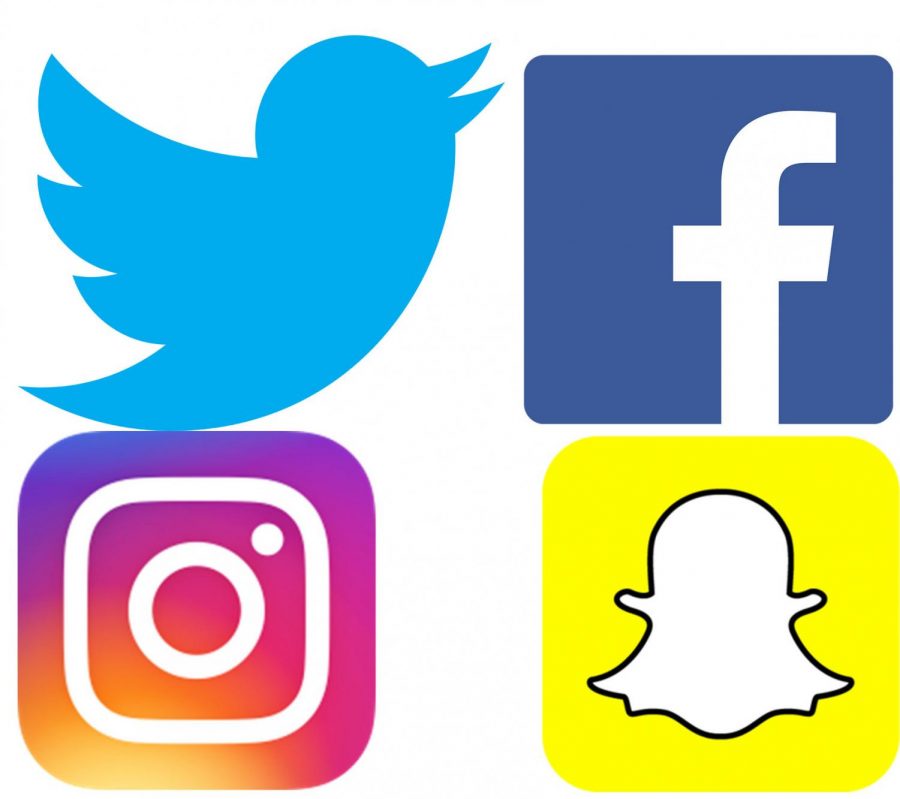Social Media: Which App Reigns Supreme?
March 26, 2018
By: Jason Rogers –
Social media: the voice of our generation. Or, rather, our collective voices finally verbalizing our thoughts to the masses. It’s hard to believe that just 10 years ago, many of the social media outlets we use and love didn’t exist. It wasn’t too long ago that you’d rush home to your personal computer and open up AOL to message people, and if you didn’t make your friend’s Top 8 on Myspace, then you weren’t friends at all anymore.
Nowadays, there are many different social media options available to those ready to connect. There’s Snapchat, where you can capture moments from your day, as well as start streaks and talk with friends. Instagram is another extremely popular app where you can post pictures and acquire likes and comments on them. There are also more versatile apps such as Twitter and Facebook, which can function as social networks as well as messaging apps and even news hubs. So, out of all of these options, which app reigns supreme?
The students of Southeast seem to think that Snapchat and Instagram share dominance over the social media world. According to a survey, about 83% of LSE students had Snapchat and/or Instagram. This is compared to about 44% who had Twitter, and only 20% who had Facebook.
Junior Anna Keester uses Instagram, Snapchat, and Twitter. Out of those three, Snapchat is her favorite. “I’m able to stay connected to my friends easiest that way,” she said. She also accurately predicted which app was the most popular at Southeast when she said, “[the most popular app is] probably Snapchat, I’m guessing.”
Contrary to what the data from Southeast students shows, Facebook actually has a near-monopoly on the social media market. Facebook, aside from its own extremely successful social media platform, also owns big apps like Whats App and Instagram, which they originally purchased for $20 billon combined. At the time of being purchased by Facebook, WhatsApp had 450 million users, in addition to growing by about a million users each day. Instagram was acquired by Facebook six years ago, and each year it’s gotten even more popular than it was the previous year. These acquisitions have paid dividends to Facebook, with all Facebook-owned apps combined (including Facebook itself) capturing 582 million downloads globally in the third quarter of 2017 (July to Sept.), which represents a staggering 46 percent of all global app downloads, according to Business Insider.
So if Facebook has such a command on the industry, why are the students of Southeast not flocking to their app, and instead opting for apps like Snapchat and Instagram? The answer lies in the culture around Facebook. For quite some time now, Facebook has carried the stigma of being the “old person app.” For whatever reason, as the social media landscape evolved, Facebook became the app where your parents can catch up with their high school classmates. Teens would much rather use an app like Instagram where they feel that they are amongst their peers, without the liability of being supervised by adults. Facebook, Inc. acquired Instagram in 2012. In 2013, the average Facebook user in the U.S. was 40.5 years old, but young people had been flocking to Instagram, so it was only logical for Facebook to buy out the newer platform to maintain their grasp on the youth demographic. Fast forward to 2017 and Facebook users between the ages of 45-54 represent 21% of the time spent on the platform, more than any other age group. In the same year, 59% of Instagram’s usership was between the ages of 18 and 29.
So, back to the question of which social media app reigns supreme. In a local sense, other apps seem to be used way more than Facebook. The students of LSE much prefer apps like Instagram and Snapchat over Facebook. However, as seen in the graphic, Facebook has blown their competition out of the water year after year in terms of total traffic across all ages and demographics. To conclude, while other apps are more popular amongst LSE students and most other young people, Facebook still dominates the competition in terms of total traffic to its app for most other demographics, and the other apps that its corporation has acquired has made Facebook an unstoppable megacorporation.









